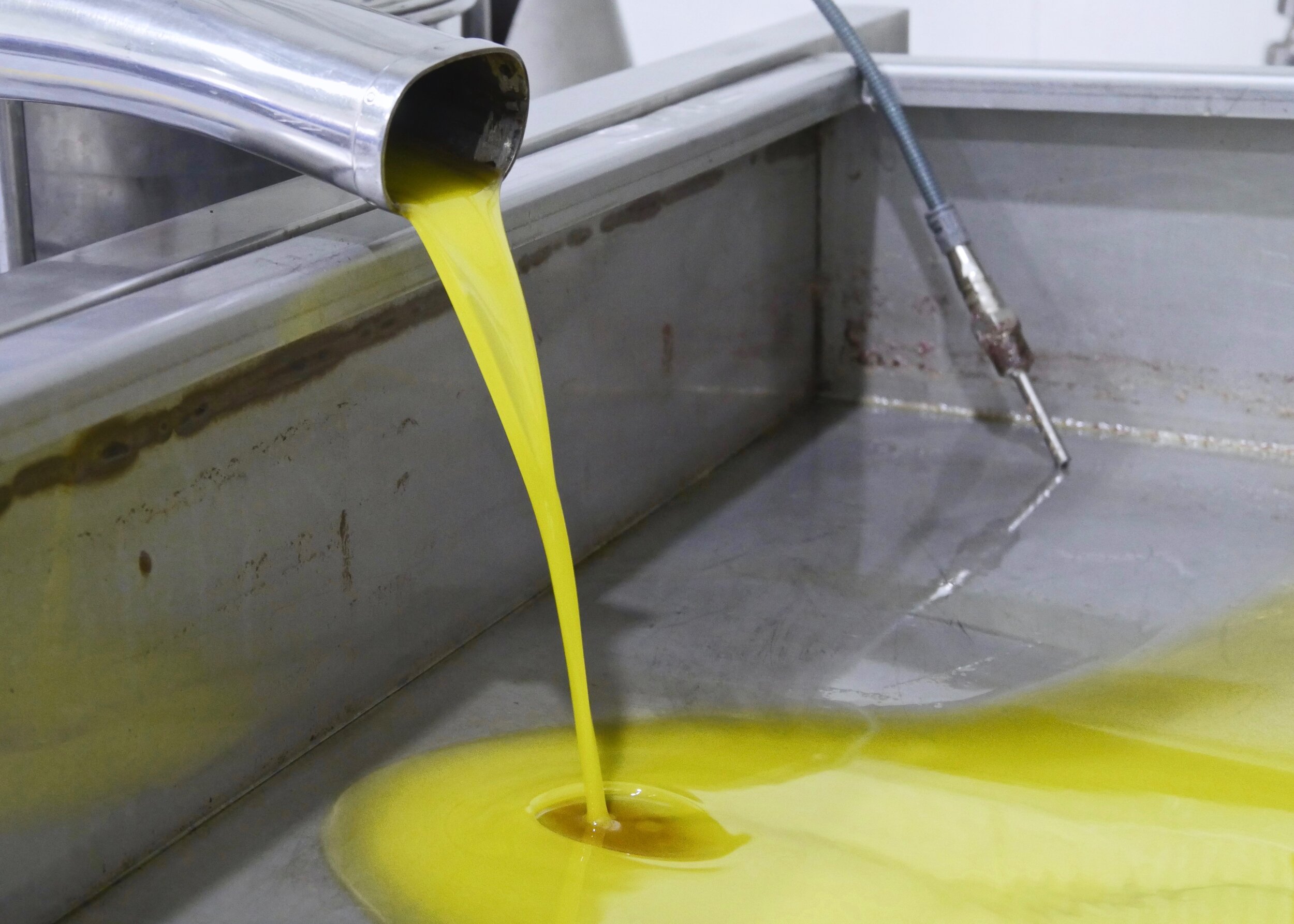Last November’s blog accompanied our olives during harvest from tree to crate, parting ways with them at the mill, where they would be cold-pressed into Quinta do Tedo’s 2020 Extra Virgin Olive Oil (EVOO).
This month’s blog explores the transformation of our olives from crate to “liquid gold” on your plate. We’ll also introduce a new collaboration with our family friends’ St Helena Olive Oil Company to bring US-based olive oil aficionados a very special EVOO from our estate’s oldest trees!
Within 24 hours of picking, before our organic olives can start to oxidize or ferment, we speed-race them to Agrifiba, the nearby organic mill, to be cold-pressed. This method yields less olive oil than those involving heat, but maintains the oil’s low acidity and high concentration of vitamins and antioxidants, which make it healthier, and volatile aromas and polyphenols, which make it smell and taste better.
Our bounty is deposited into a vat where the leaves are removed (otherwise adding unpleasant bitterness to the oil’s final flavour) and the fruit is washed. The olives are then crushed to release, from each cell, minuscule oil droplets that make up 15-20% of the fruit (5 kilos of fruit yield 1 litre of oil, hence the term “liquid gold”). The resulting paste is slowly mixed for 30 minutes to encourage the oil droplets to coalesce, which facilitates the oil’s separation from the other olive by-products, and ensures maximum yield.
The majority of olive oils’ aromas and flavours, unique to the varieties and regions they come from, are expressed during the above-mentioned crushing and mixing phases. This is when the fruit’s enzymes break down molecules that release citrus, herb, banana peel or almond smells, and bitter, sweet or grassy tastes, to list a few of olive oils’ nuances.
During centrifugation, the paste is spun at high speed in a large tube which separates the olives’ oil, water and solid components thanks to their different densities. The water and solid material are discarded while the bright, green olive oil pours out of the centrifuge, accumulating a thin layer of froth on its surface. João, Agrifiba’s technician whom I followed alongside Quinta do Tedo’s olives through this entire process, told me this froth protects the exposed oil from UV radiation, oxidation and bacteria before it can be moved into stainless steel tanks to decant.
Over the next 60 days, any remaining solids and water in the oil naturally sink into a cloudy, brown layer at the bottom of the tank. In the past, this was used as fuel, animal feed, fertilizer, leather and bronze shiner, and even an ointment to protect sheep from tick bites. Nowadays, we filter it to use as cooking oil for staff lunches at Quinta do Tedo. This year we will also use a portion to make artisanal soaps with a natural skincare guru friend of ours (stay tuned!)
The clean oil that remains at the surface of the tank is what we bottle for you to enjoy in our Bistro Terrace and tasting room, and at your own dining tables throughout Europe (via our online shop) and the US (via Rachel Farah Selections).
This past harvest 2020, we custom-crushed a special blend of Moleirinho, Verdeal, Carrasquenha and Cordovil olives from our estate’s low-yielding, oldest trees to produce a deep and complex “Bouchard Family Selection” for the St Helena Olive Oil Company. My brothers and I have known the O’Kelly sisters since we were peanuts playing hide and seek in Napa Valley’s olive groves, and we are excited to merge forces to continue to innovate and strengthen our family businesses.
Finally, we would like to voice our appreciation for Agrifiba, one of Douro Valley’s few certified organic mills that uses the cold-press extraction method, and wins awards in international EVOO competitions every year. They have top-notch machinery and hygiene standards, and an expert, friendly and efficient team that provides their clients with technical support. We applaud Agrifiba’s efforts to minimize their carbon footprint by working with partners to transform discarded olive leaves into compost and grind discarded olive pips into biofuel. We look forward to sending Quinta do Tedo visitors and B&B guests their way, when they open their doors to guided olive oil tastings in the near future!















